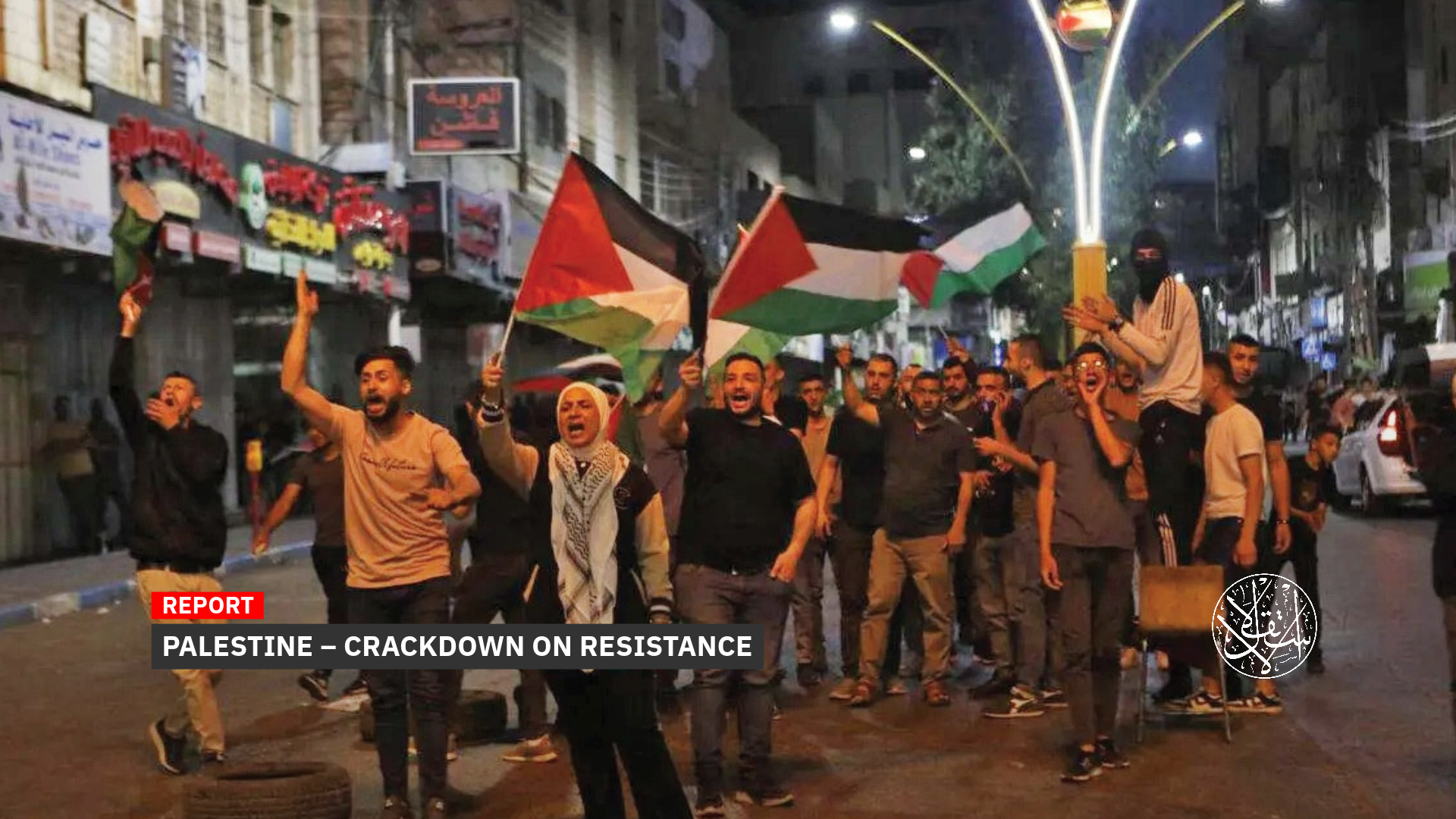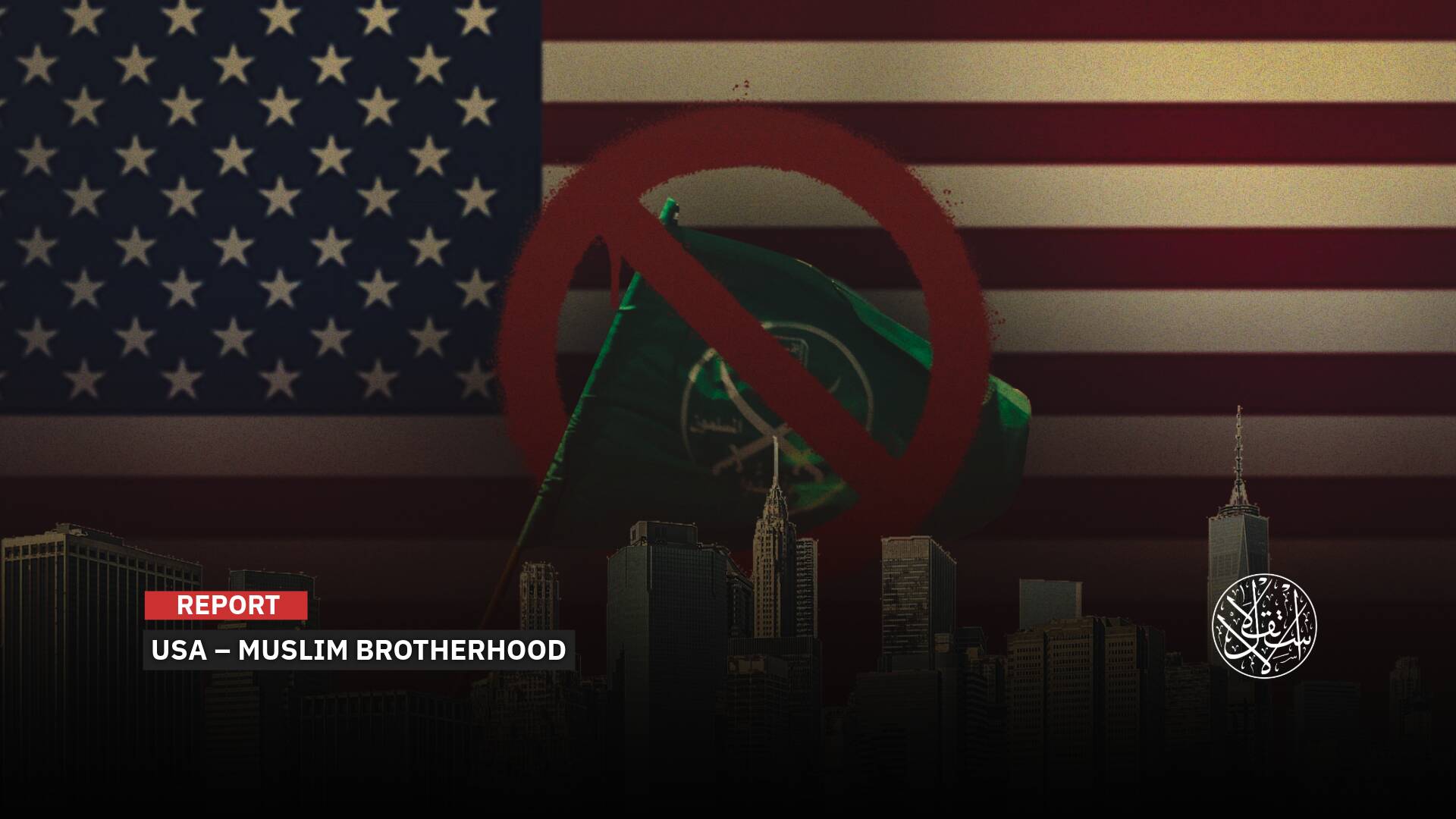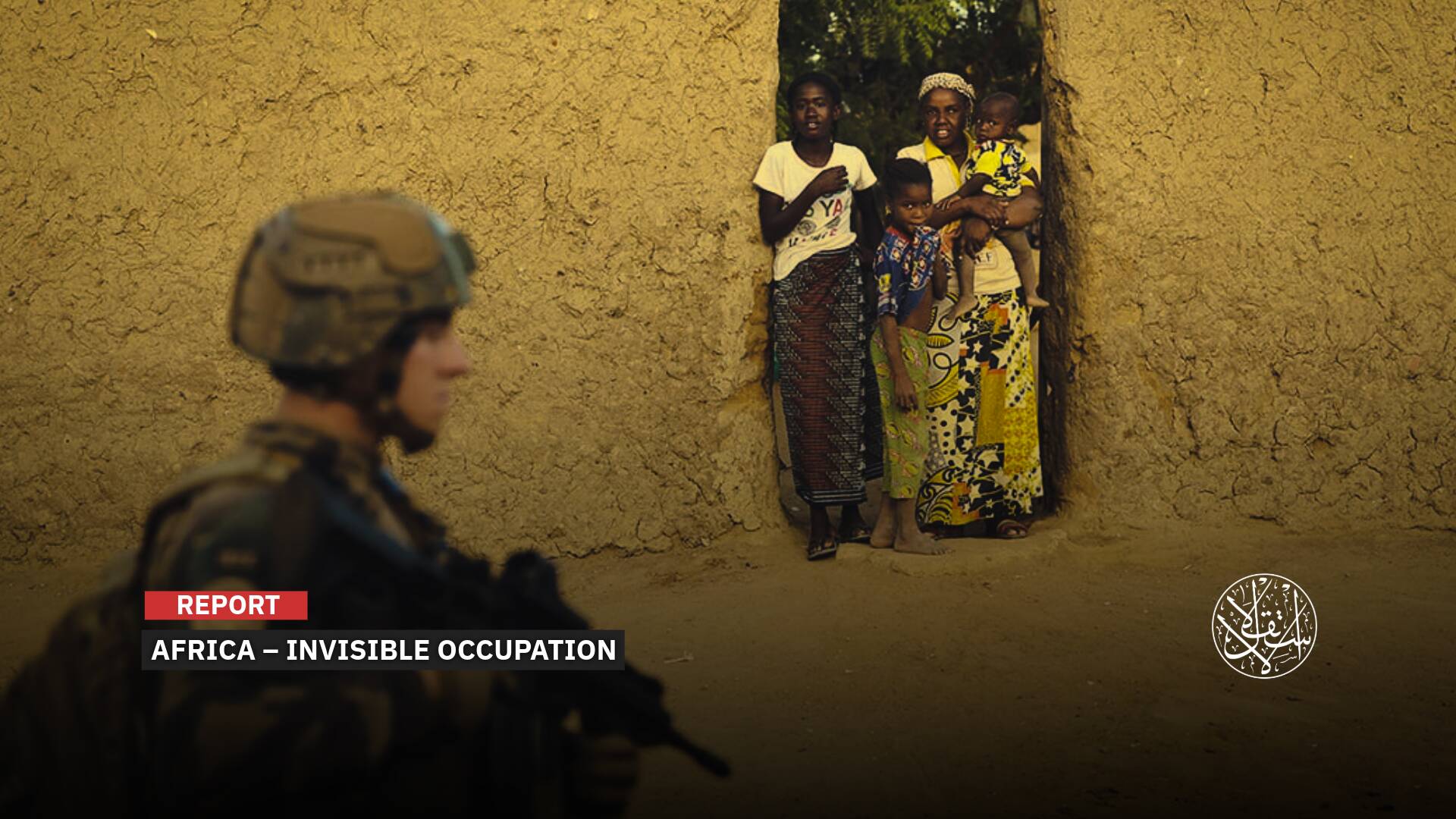Abbas Authority's Arrest of Resistance Fighters: Does It Lead to Internal Conflict in the West Bank?

The Palestinian Authority’s security apparatus in the West Bank has entered a new phase of political arrests, primarily targeting resistance fighters and military group leaders in the camps, especially in Jenin and Nablus (northern West Bank).
The Palestinian Authority’s targeting of resistance fighters in the West Bank threatens to lead to internal conflict and unrest, especially since these actions are seen as part of the security services provided by the Ramallah government to “Israel.”
The intensity of the Palestinian Authority’s arrests of resistance fighters in the West Bank increased following the end of the battle in Jenin, where the resistance engaged with the Israeli Occupation army in July 2023.
In early July 2023, the Israeli Occupation army carried out a military operation against the Jenin refugee camp, resulting in the martyrdom of 12 Palestinians and dozens of injuries.
It also caused significant destruction to the infrastructure and displaced nearly four thousand Palestinians from the camp. Additionally, an Israeli elite forces soldier was killed during the operation.
Most Notable Arrests
Among the prominent figures arrested by the Palestinian Authority’s security agencies was Khalid Malaysha, one of the key leaders of the al-Quds Brigades, the military wing of the Islamic Jihad Movement in Jenin.
Malaysha, who had previously been a prisoner and one of the most wanted by the Israeli army, was arrested by the Palestinian Authority in July 2023.
Prior to Malaysha’s arrest, the Palestinian Authority’s security agencies had arrested Musab Shtayyeh, an activist affiliated with Hamas’s resistance movement and one of the most wanted by the Israeli army in Nablus and northern West Bank in September 2022.
The Palestinian public prosecution has filed charges against the resistance fighters, including the constant charge of “possession of firearms without a license,” serving as a pretext for the court to extend their detention and possibly sentence them to imprisonment.
The Palestinian Authority, led by Mahmoud Abbas, emphasizes that its security force, which it does not use against “Israel,” is “legitimate and the only one.” It refuses any armed actions and calls for adhering only to popular resistance.
Faced with these arrests, the “Jenin Brigade,” affiliated with the al-Quds Brigades, threatened to take action in support of the abducted resistance fighters in the Palestinian Authority’s prisons, warning that these actions could escalate the situation and lead to an unpredictable outcome.
In addition to the resistance fighters, the Palestinian Authority’s security agencies target university students, political activists, and released prisoners, imprisoning them with various charges, most of which are considered unlawful according to Palestinian human rights organizations.
Human rights organizations affirm that the arrests of activists and resistance fighters fall within the context of politically motivated detentions.
All these arrests are carried out without any arrest warrants from relevant authorities, violating both Palestinian constitutional law and international human rights agreements.
A group of lawyers for justice documented 727 cases of detention since the beginning of 2023, including dozens of activists and citizens based on their political affiliations, freedom of opinion, and expression. They also documented dozens of torture cases, with 14 of them clearly expressing having been subjected to torture during interrogation sessions before the prosecution or the court.
This increase in repression and arrests is seen as an indicator of the ongoing crisis within both the executive and judicial branches of the Palestinian Authority, which provide cover and legitimacy for the repression targeting constitutional rights, including the right to self-determination. It reflects the extent of deviation in the roles and authorities granted to it by law.
Consecutive Incidents
Incidents of internal conflict between the Palestinian Authority in the West Bank and resistance fighters have begun to surface in several refugee camps and cities.
One of the most prominent clashes occurred on August 2, 2023, in the city of Jenin in the northern occupied West Bank. This was triggered by the continued detention of Khaled al-Ararawi, the uncle of the martyr Majdi and the father of the wounded Kamal.
During the clashes, security forces entered the Jenin Government Hospital and took shelter inside, opening fire toward homes in the mentioned city’s camp. In response, resistance fighters fired intensively toward the district headquarters (the Authority in Ramallah).
In addition to the clashes in Jenin, other skirmishes took place in the city of Nablus in the northern West Bank on the same day.

Consecutive Clashes
The clashes between the Palestinian Authority and resistance fighters began after the Palestinian security forces removed iron barriers placed at the entrance of the camp, which were meant to obstruct the movement of Israeli Occupation forces.
In June 2023, the Nur Shams refugee camp east of Tulkarm witnessed armed clashes between Palestinian security forces and individuals affiliated with resistance groups. This occurred after the initial attempt to remove iron barriers and vehicle tires placed by resistance members at the camp’s entrance.
According to media sources and documented videos, security forces stormed the camp’s surroundings to remove the barriers and tires.
The armed youth attempted to defend them in place, leading to armed clashes without any reported injuries.
In addition to these clashes, dozens of resistance members took to the streets of Tubas in the northern occupied West Bank after midnight on August 16, 2023, carrying their shrouds.
They did so in response to ongoing pursuits by the Palestinian Authority’s elements and the detention of one of their colleagues.
The resistance members condemned the suppression of a popular demonstration that demanded the release of political prisoners.
The Mobilization of Resistance
Maher al-Akhras, a leader in the Islamic Jihad Movement in the West Bank, does not rule out the possibility of internal conflict between the Palestinian Authority and resistance fighters due to the ongoing arrest campaigns against them.
In his statement to Al-Estiklal, al-Akhras, who was arrested by the Israeli Occupation forces a day after conducting an interview with him, says that the Palestinian Authority is heading in the wrong direction by trying to appease Israeli leaders at the expense of the people.
He points out that this was evident through the security reinforcements that arrived in Jenin after the withdrawal of the Israeli Occupation.
He explains that the arrests of the resistance fighters by the Authority in the West Bank are part of its obligations, especially after the Jenin operation.
He believes that there is no decision to release the detained resistance fighters, as it is linked to instructions from the Israeli and American authorities.
He further states that maintaining the Authority’s sovereignty should be through resisting the Israeli Occupation army, which destroys the homes of citizens and kills Palestinians. He presumes that their silence implies approval of the violations by “Tel Aviv.”
He emphasizes that the resistance fighters have the right to defend themselves if the Authority attempts to arrest them or confiscate their weapons, and they will not surrender their arms even if it leads to their deaths.
Jamal al-Huwail, a member of the Revolutionary Council of Fatah, affirms that pursuing resistance fighters under the guise of the law is unacceptable, demanding their release.
During a memorial held on August 18 in Jenin to commemorate several camp martyrs, he stressed that the bullets of the resistance will only be directed at the Israeli Occupation and that attempts by some to ignite discord among the resistance will not succeed.
He indicated that armed resistance is the only path to liberate Palestine, and the rifle will remain until “Israel” is gone.










